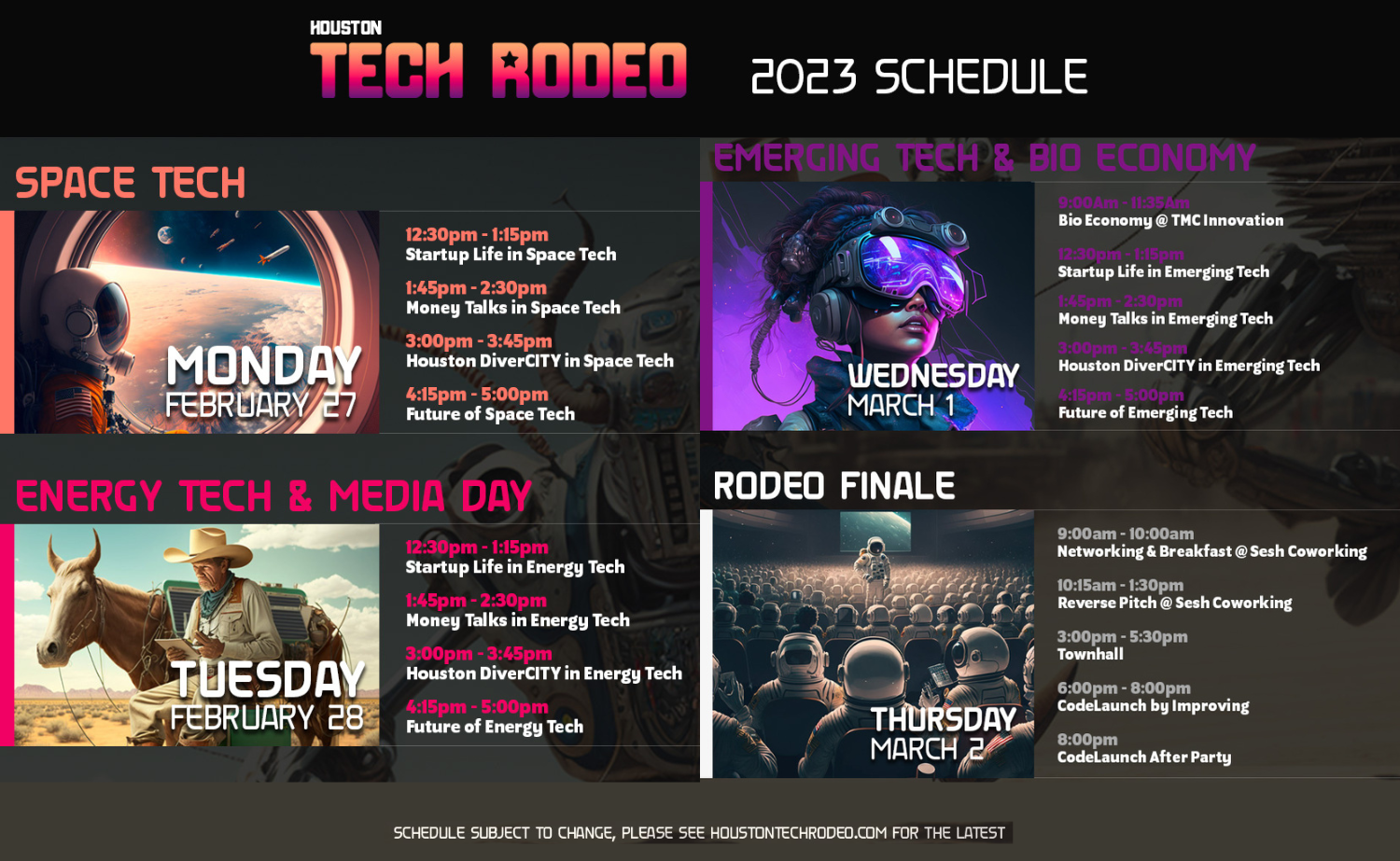Houston Tech Rodeo returns this year — and the lineup of panels and networking opportunities has been released online.
The four-day summit was originally introduced in 2020 by Houston Exponential to shine a spotlight on Houston's tech and startup ecosystem. Last year, HX changed ownership, converted into a for-profit business, and named Natara Branch as the new CEO. With the new ownership comes a new era for HTR — complete with AI-generated media, a goal for a record-breaking finale event with CodeLaunch, and more.
"The biggest theme of Tech Rodeo this year is around being aware," Branch tells InnovationMap. "We want entrepreneurs to know what resources are out there, that they are supported, and that there are all these entities out here that are conducting themselves in a manner that is really centered around supporting them."
"We hope that when entrepreneurs and startups walk away from Tech Rodeo this year, it will really feel to them like there's more momentum in this city than there has been in the past so that we can be a top-tier startup destination," she continues.
This year's schedule is divided across a few themes and all events are being held in the Houston Innovation District in Midtown.
- Monday, February 27: Space Tech at the Ion
- Tuesday, February 28: Global Mindset at HCC Central Campus and Energy Tech at Greentown Labs
- Wednesday, March 1: Bio Economy at TMC Innovation and Emerging Tech at The Cannon - Downtown
- Thursday, March 2: Townhall and CodeLaunch Finale at Sesh Coworking and 713 Music Hall
More information and registration is available at houstontechrodeo.com.

